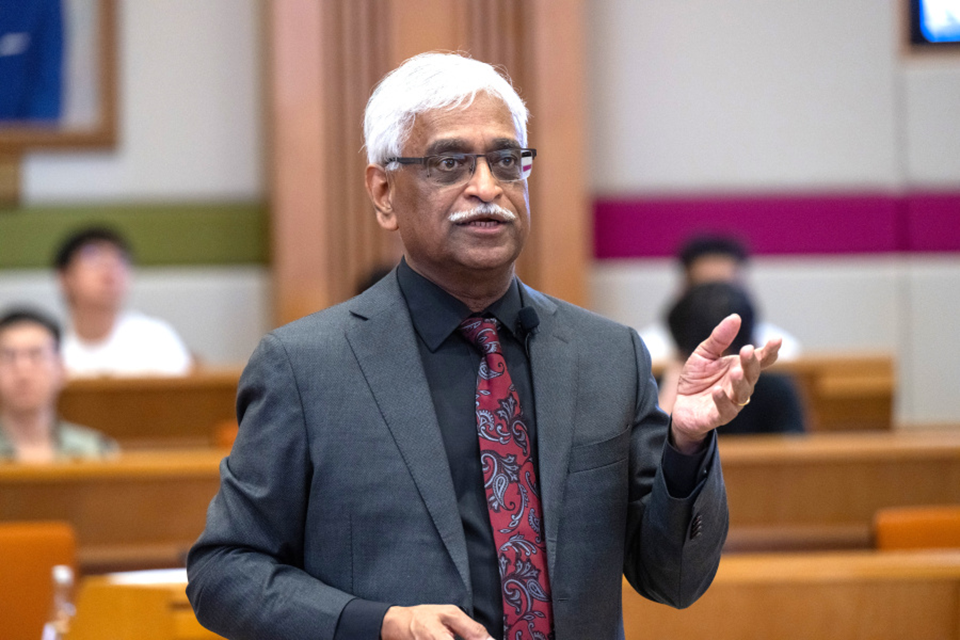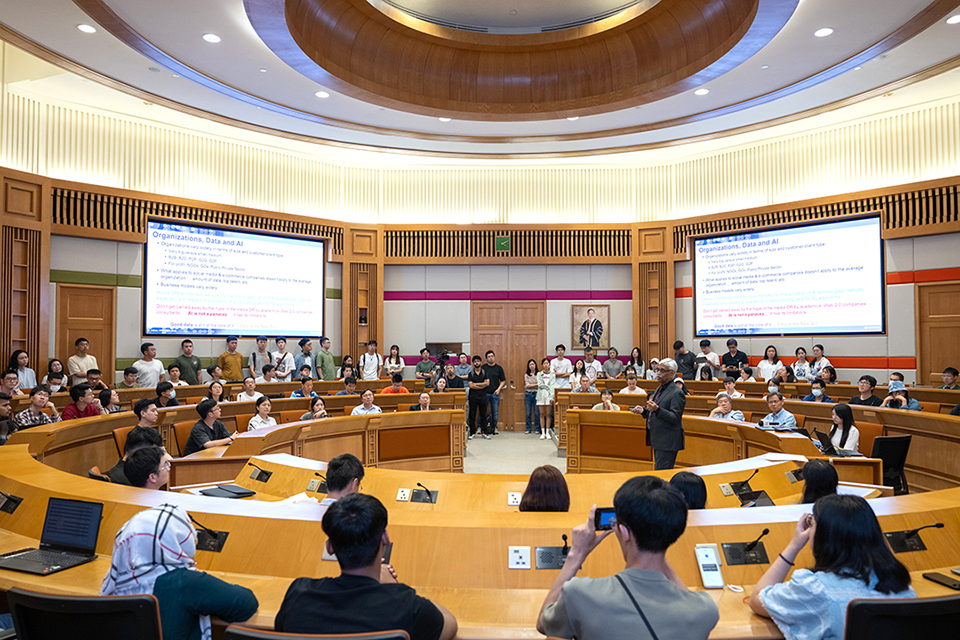Discover HKBU
The Evolution of AI: The importance of quality data and ethical use
30 Sep 2024
“Do not get carried away by the hype in the media… AI is not a panacea and good data is still at the core of everything!” This insightful and thought-provoking opening by Professor C. Mohan, Distinguished Professor of Science of HKBU, marked the start of a full-house lecture, “Artificial Intelligence (AI): Past, Present and Future”, organised by the Department of Computer Science on 3 September.
Shedding light on the evolution of AI, Professor Mohan cited the Gartner Hype Cycle to illustrate the trajectory of new technologies, including that of AI. Released in June 2024, the cycle depicts how innovations experience peaks of inflated expectations, followed by troughs of disillusionment, before eventually reaching a slope of enlightenment and ultimately becoming mainstream.
“This kind of peak to trough has happened at least three times for AI. The younger generation may think AI is a modern phenomenon, but the phrase AI was coined in 1956, at the Dartmouth Summer Research Project on Artificial Intelligence, which also happens to be the year HKBU was born,” mused Professor Mohan.
At the heart of effective AI applications is quality data. Often referred to as “the new oil”, data fuels AI systems, enabling them to learn and perform tasks. In recent years, concerns have arisen regarding how companies mine information and the fairness of the data used to train AI models. Others have also cautioned against a widening digital divide, where access to AI resources favours those with more resources, leaving the underprivileged communities at a potential disadvantage.
Drawing on his experience at IBM and his work with international universities and research agencies, Professor Mohan stressed the importance of equal and ethical use of generative AI, such that everyone can benefit from this technology regardless of their social or economic standing.
Professor Mohan also warned against the phenomenon of hallucinations in Large Language Models (LLM). This is when the AI model generates responses that are inaccurate and misleading, to the extent of creating fictional events or quotes that do not exist. Hallucinations further highlight the necessity for critical evaluation of the generated content by users.
While generative AI holds huge promise to transform industries and improve lives, it is worth remembering technology is not infallible. And much like any tool, it is meant to be a force for positive change, and not a justification for exploitation or making humans and human creativity irrelevant.
“AI can be a game-changer, if we use it ethically and prioritise quality data over hype at all times.” Professor Mohan’s sage advice on ethics and truthful information ring true, and time will tell whether the human architects of AI have navigated its development with prudence and foresight.
Professor C. Mohan is currently a Distinguished Professor of Science at HKBU, a Distinguished Visiting Professor at Tsinghua University, and a member of the inaugural Board of Governors of Digital University Kerala. He has been elected to the National Academy of Engineering in both the United States and India. He retired in June 2020 from being an IBM Fellow at the IBM Almaden Research Center in Silicon Valley. He was an IBM researcher for over 38 years in the database, blockchain, AI and related areas, impacting numerous IBM and non-IBM products, the research and academic communities, and standards, especially with his invention of the well-known ARIES family of database locking and recovery algorithms, and the Presumed Abort distributed commit protocol.

